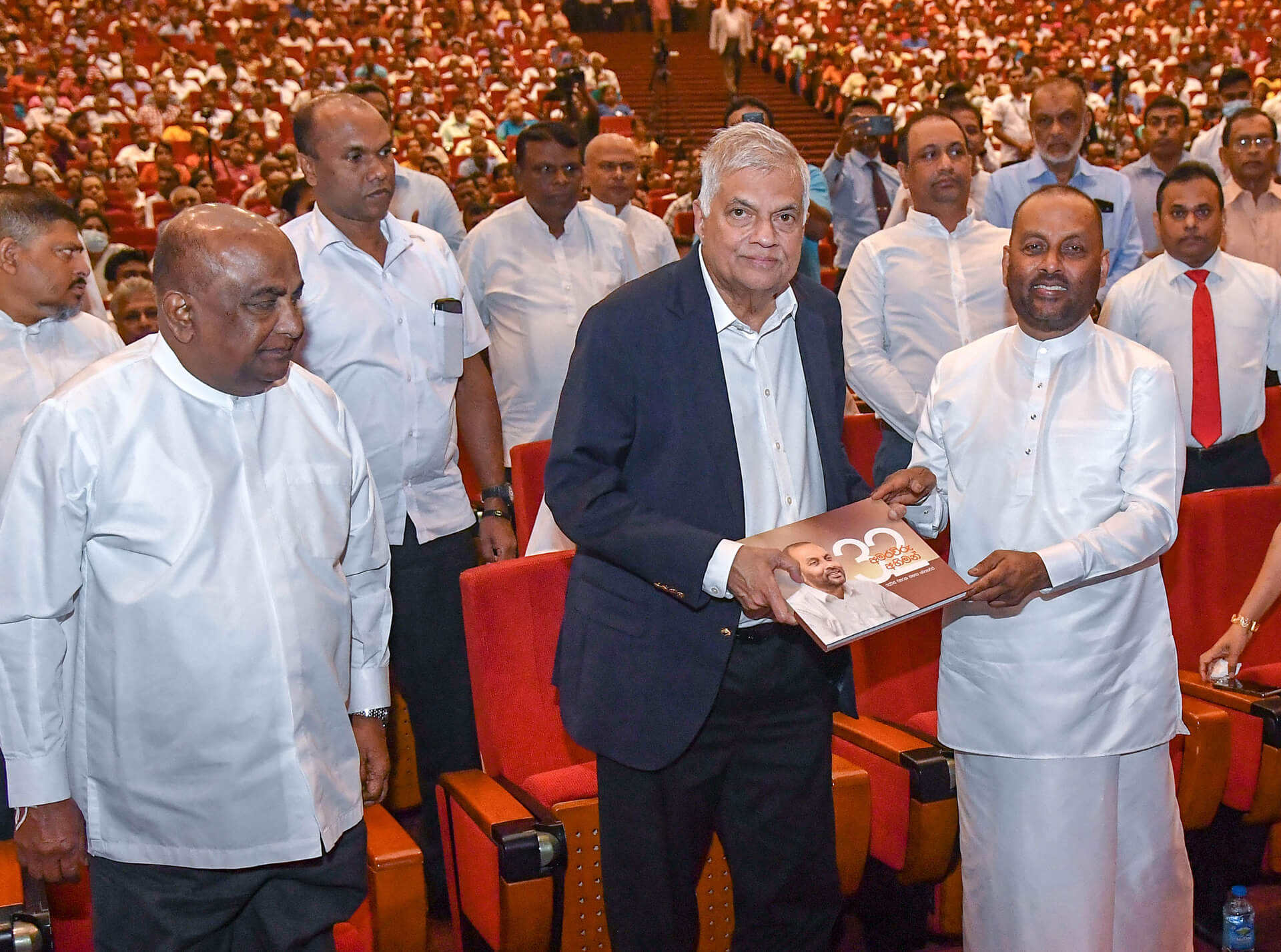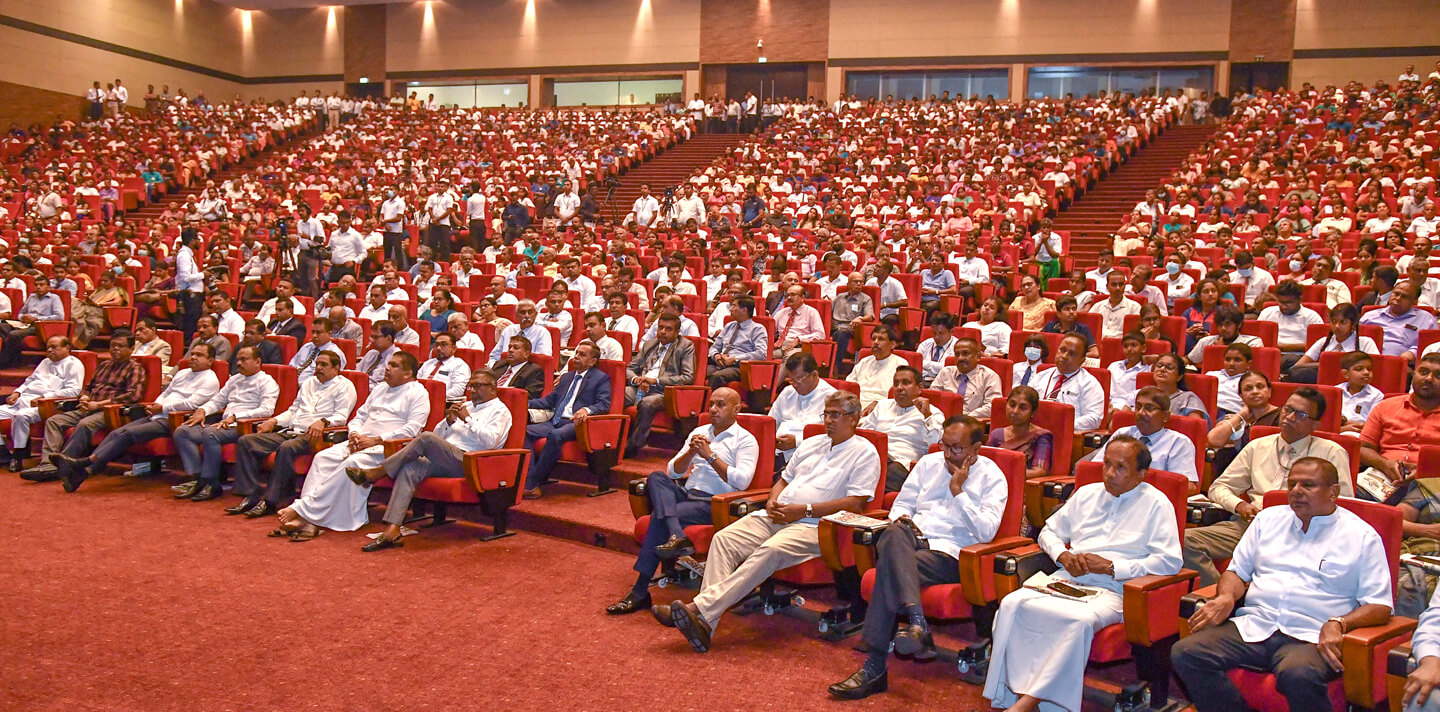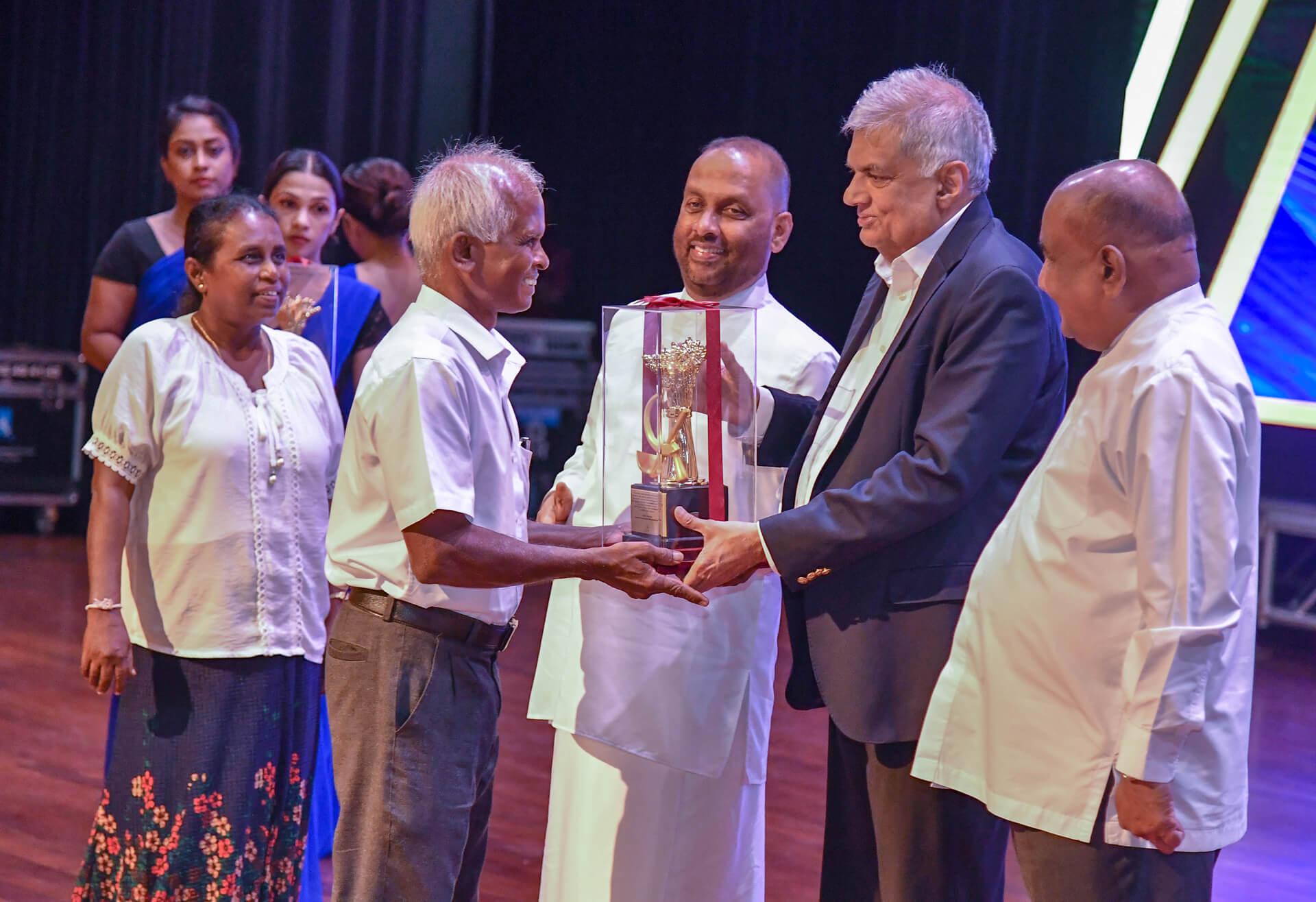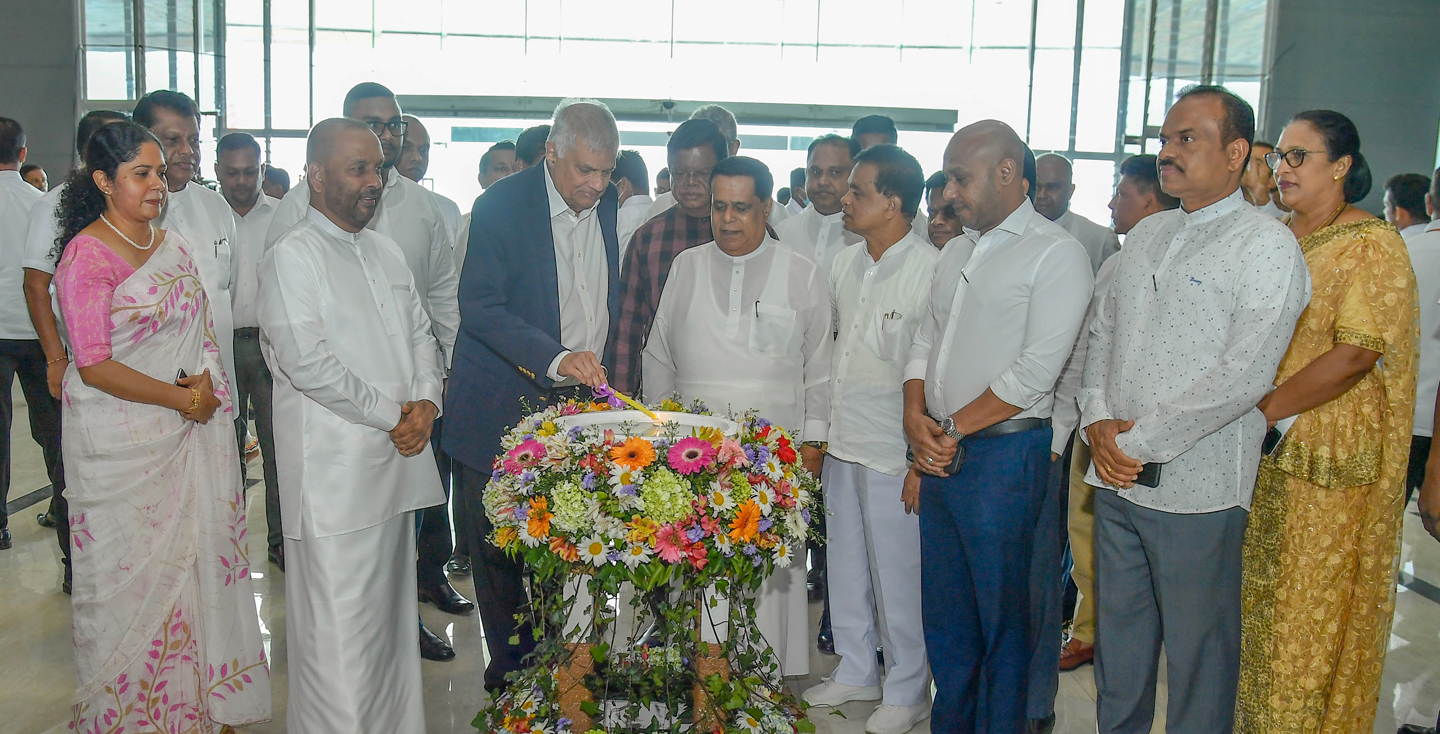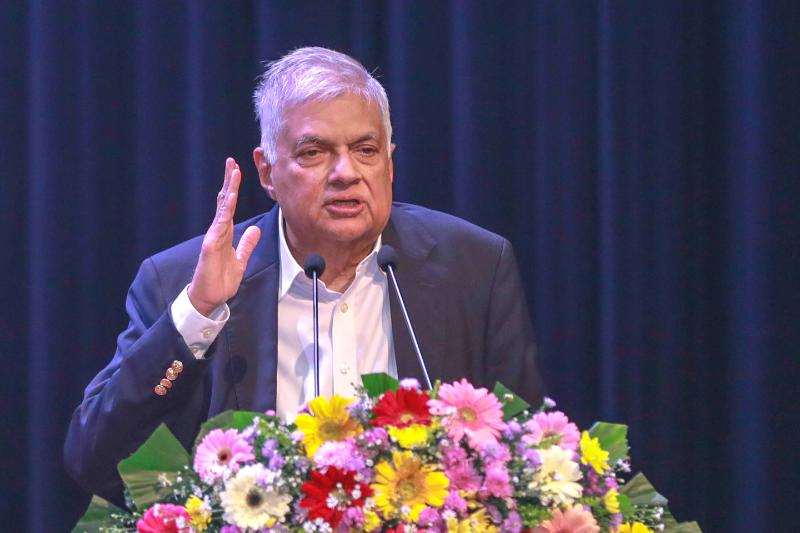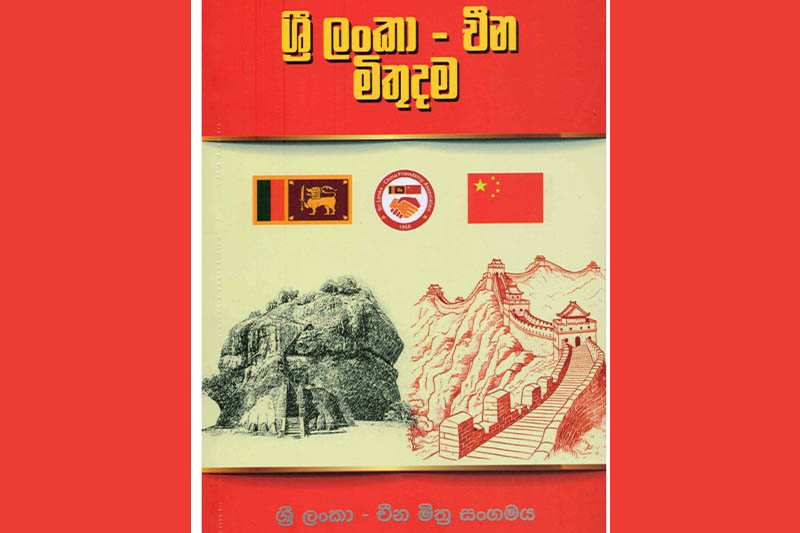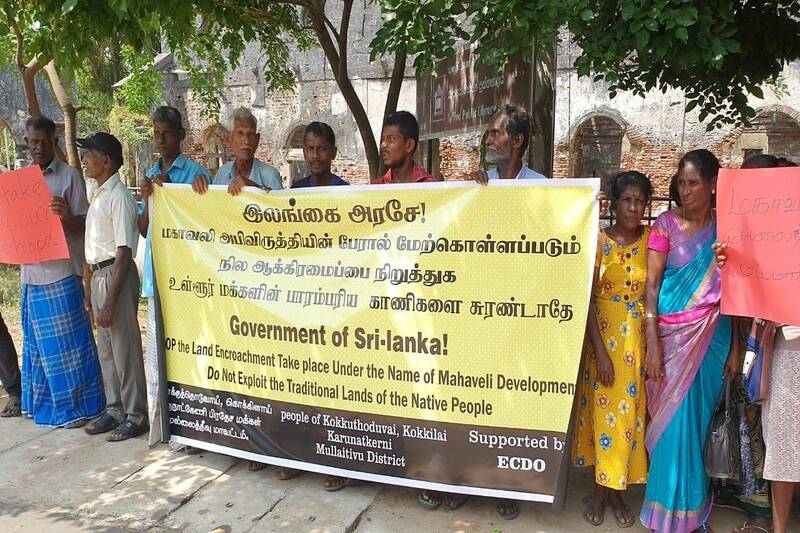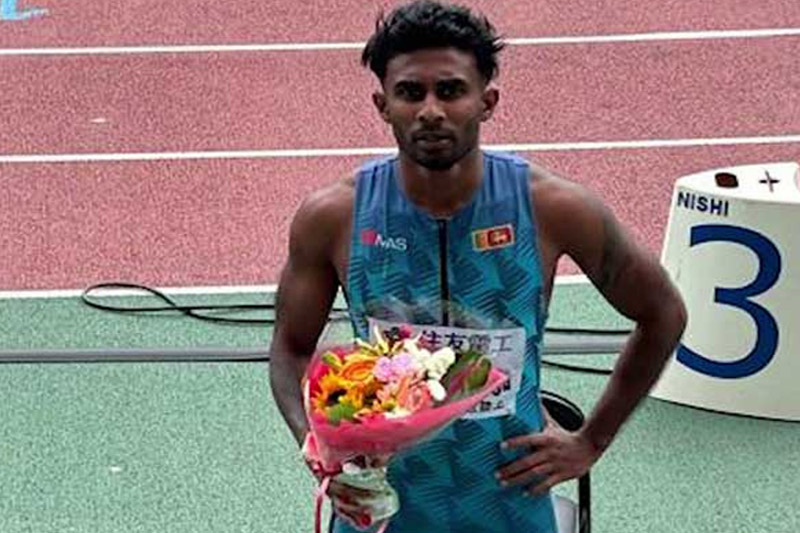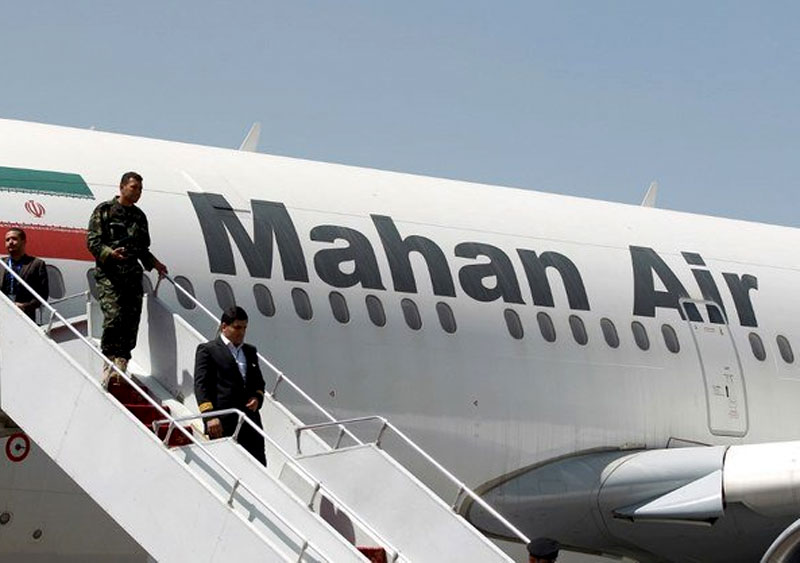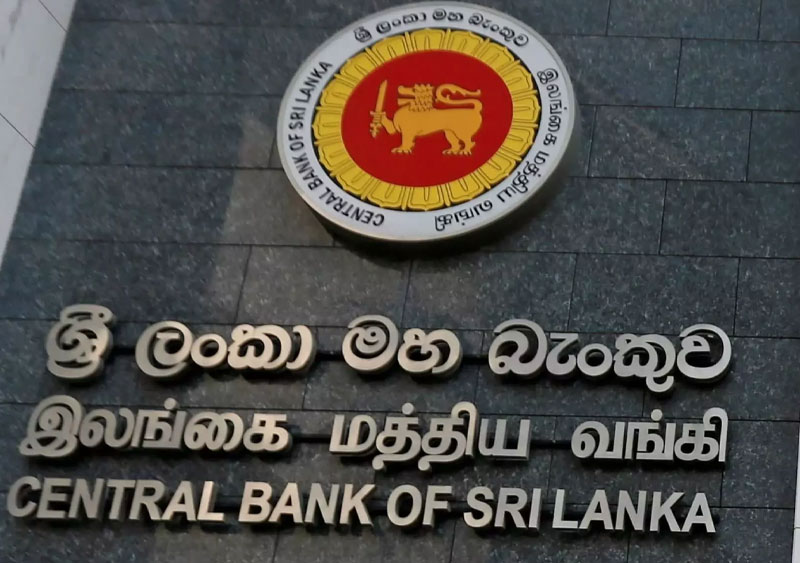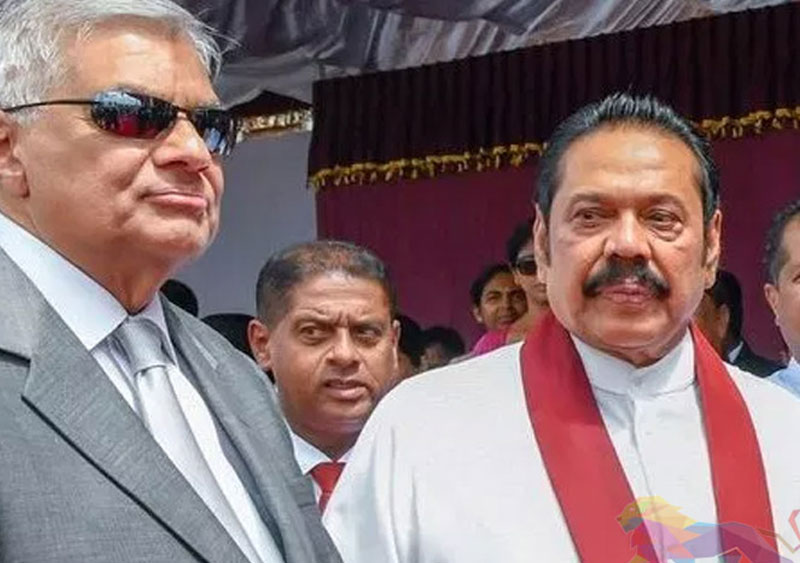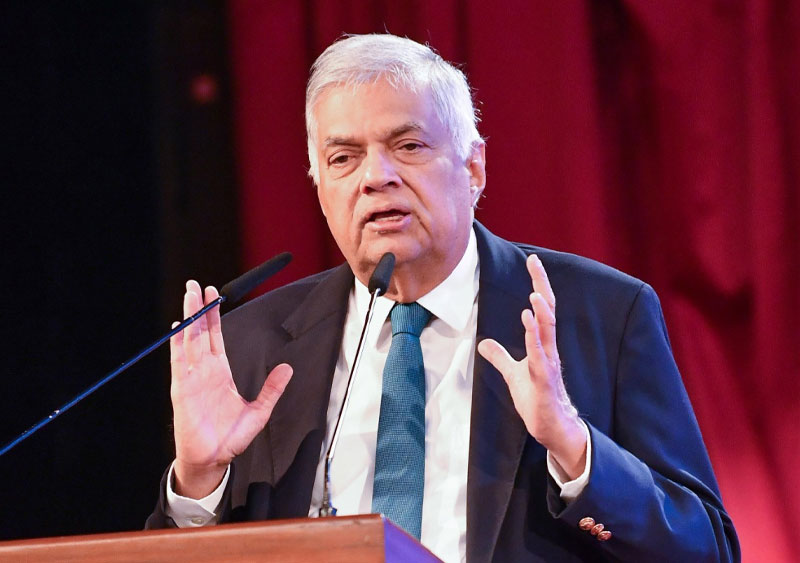Pointing out that the opposition’s allegations regarding the restructuring of local debt have been proven false, President Ranil Wickremesinghe emphasized the importance of avoiding misleading arguments and instead urged the entire opposition, led by the opposition leader, to join the government in addressing the country’s challenges.
The President encouraged the opposition to participate in the next presidential election and contribute to rebuilding the country by fulfilling their responsibilities to the people and expressed his willingness to assign additional duties to the opposition in consultation with the Speaker, if necessary.
President Wickremesinghe made these remarks at the “Amarawiru Abhiman 32” ceremony which honoured Agriculture Minister Mahinda Amaraweera for his 32-year political career.
Speaking further, the President said;
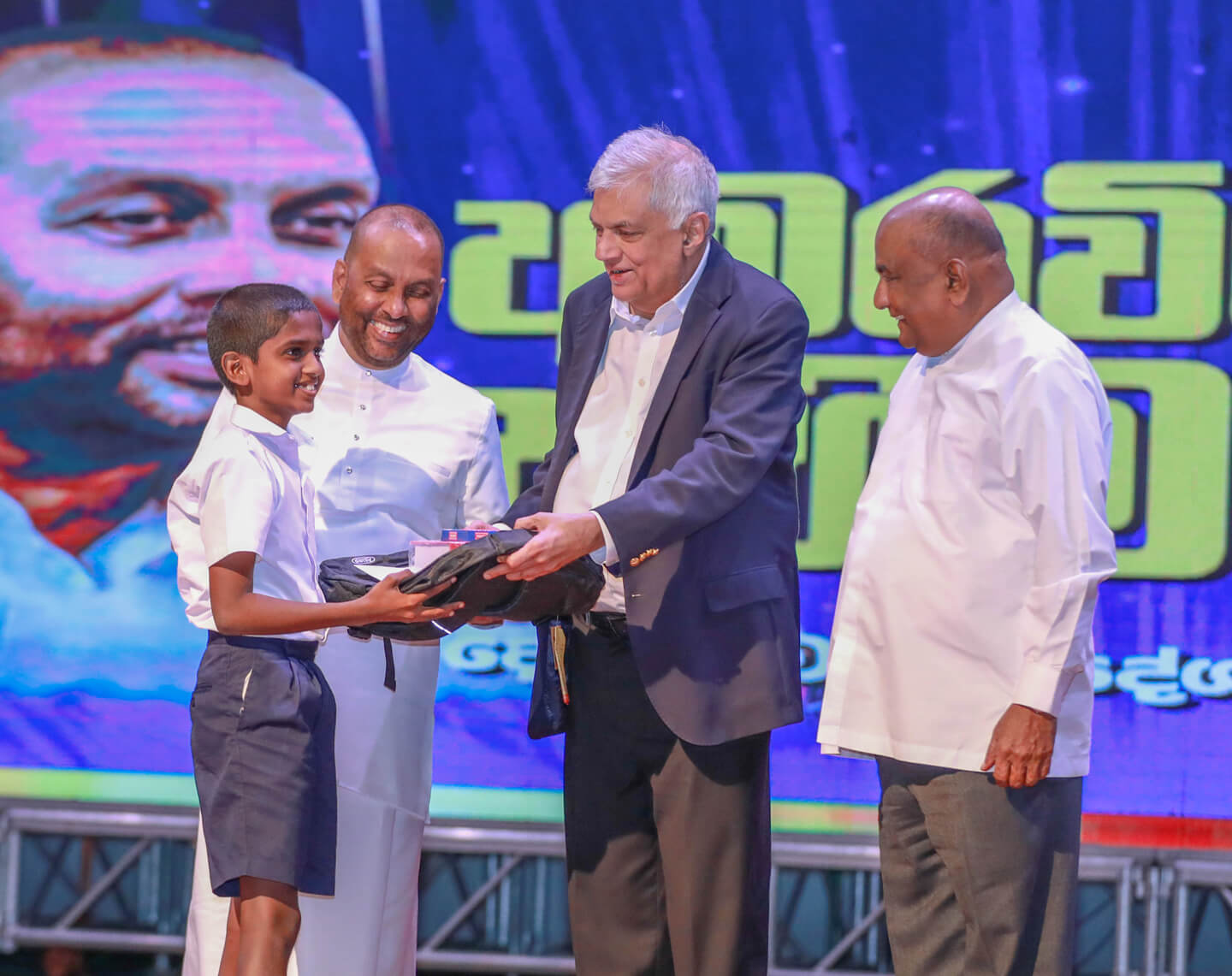
Minister Mahinda Amaraweera has rendered outstanding service to the people of the country over his 32-year political career and 28-year parliamentary career. We should appreciate him for his wisdom and extensive experience as a politician. Throughout different eras, we have worked together as members of the party and the opposition, including serving under President Maithripala Sirisena’s leadership.
In continuation, as Prime Minister of President Gotabaya Rajapaksa’s government, I announced our intention to move forward with the participation of all members. In 2022, President Gotabaya Rajapaksa invited all Parliamentary party leaders to the President’s Office. Unfortunately, the Samagi Jana Balawegaya and Janata Vimukthi Peramuna boycotted the meeting.
During that time, I, along with Mr. R. Sampanthan and Mr. Maithripala Sirisena, discussed how to resolve this issue. Despite our efforts to bring everyone together after the incident on May 9, the Samagi Jana Balawegaya did not join us, even though they were offered the opportunity to participate without assuming the post of Prime Minister. Consequently, our government was formed, and we began our duties.
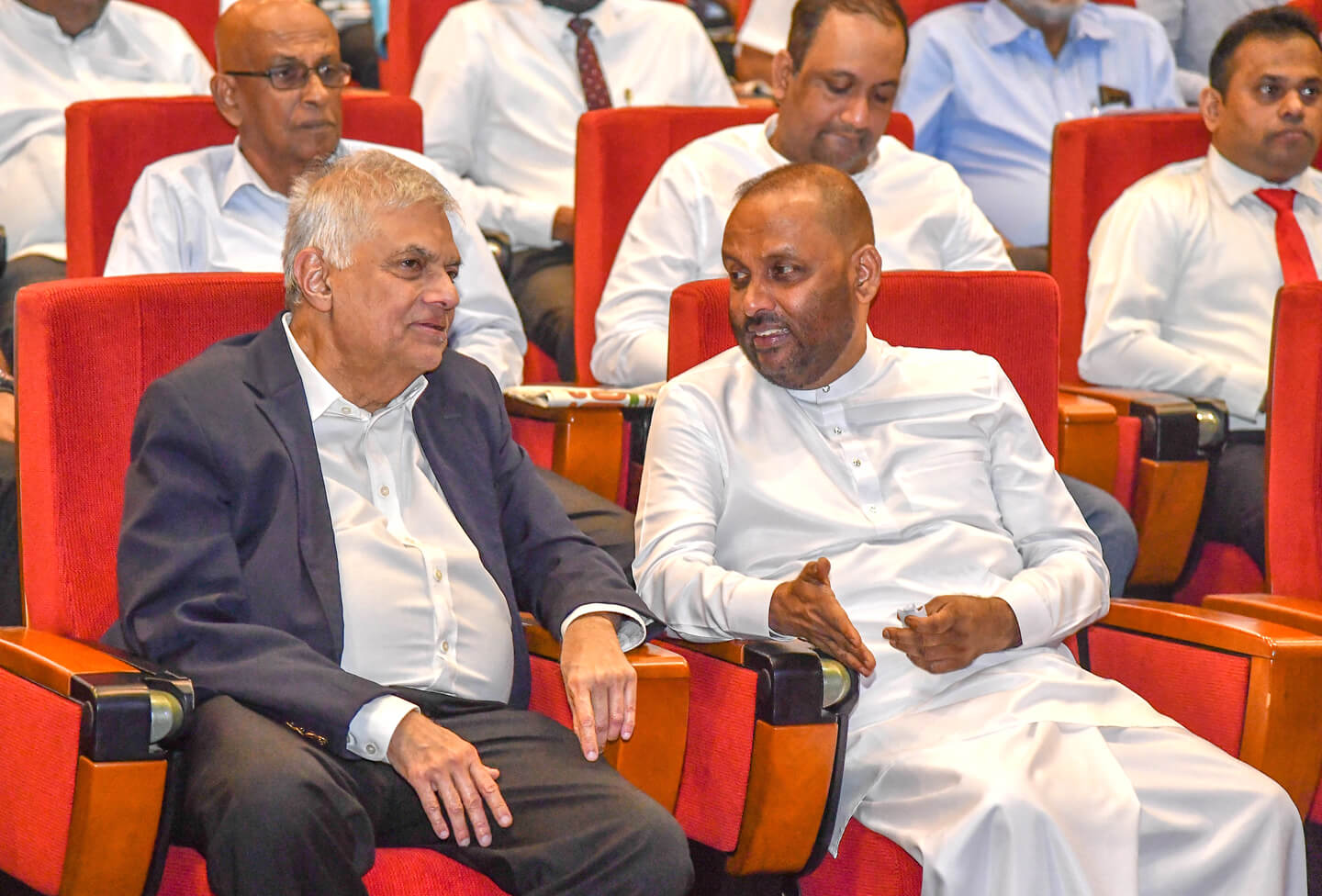
I was appointed President, Mr. Dinesh Gunawardena became the Prime Minister, and Mr. Mahinda Amaraweera was entrusted with the responsibility of the Agriculture Minister. Despite the challenges faced by the agriculture sector, Mr. Amaraweera’s leadership has allowed us to make significant progress.
We initiated a program to ensure an ample harvest before the Sinhala New Year in 2023 and formed food security committees. While we invited members from both the ruling party and the opposition to participate, the opposition did not attend. When the harvest yielded an abundance of crops, the committee presidents started distributing rice to the people, which sparked outrage among opposition members who felt excluded.
Minister Amaraweera and the dedicated officers who worked tirelessly on these efforts deserve our gratitude. We swiftly provided fertilizer to the farms, ensuring a seamless process from the shipment to the fields. This has contributed to food security and assistance to the less privileged.
Now, our focus is on promoting agriculture in the country, particularly export-oriented agriculture. We have mainly concentrated on meeting our domestic food requirements thus far, but it is time to produce crops that the world demands. To achieve this, we have launched a large-scale agricultural modernization effort.
Additionally, we have implemented a comprehensive plan for the development of livestock resources. We have received requests from Ambewela Company, the country’s leading livestock company, to provide them the Ridigama farm. We hope to fulfill this request to further develop the livestock sector in that area.
Notably, Amul, a renowned Indian company, has collaborated with our Livestock Development Board, and we have received interest from several other firms. It is important to highlight that we do not import animals from other countries. Instead, we encourage businesses to adopt and invest in this sector, which will lead to the emergence of new industries, particularly in the dairy sector.
Expanding our agricultural efforts, we aim to export eggs and chicken as well. However, we acknowledge that we cannot achieve this alone. Therefore, the government and the business sector must collaborate to drive these initiatives forward.
All these measures are being undertaken to ensure the country’s success. We have implemented various initiatives to improve financial stability, including reaching a staff-level agreement with the International Monetary Fund last September. Budget recommendations for 2023 have been submitted to Parliament for execution.
Increasing taxes became necessary due to the circumstances we faced. I proposed that we all collectively undertake this task. However, the opposition at the time demanded to see a signed agreement and accused the government of corruption.
Despite facing obstacles and protests, we proceeded with the initiatives in January and February. Finally, in April, the International Monetary Fund’s Executive Board approved the agreement. It was a requirement to reach a debt restructuring agreement with the Paris Club, India, and China. The opposition initially claimed that China would not agree, but eventually, China consented in March.
We then aimed to present this agreement to Parliament for approval. However, the opposition did not support it. Subsequently, we had to negotiate with the creditors, which was entrusted to our officials.
During the negotiations, we emphasized the need to reduce not only foreign debt but also domestic debt. Failure to decrease domestic debt would result in a lack of funds to pay foreign debt, as we must purchase dollars in local currency. Thus, we requested a reduction in domestic debt.
The Governor of the Central Bank and my advisor suggested that this task could be accomplished without affecting bank deposits or the Employees Provident Fund. We initiated this proposition through the State Financial Committee, which summoned the necessary officials and conducted relevant inquiries. Eventually, they agreed to the suggestion.
However, when the proposal reached Parliament, it did not receive the necessary backing, as 62 MPs voted against it.
The opposition raised three main arguments. First, they claimed that the Employees Provident Fund should not be touched. However, we did not touch it, and we legally safeguarded it by establishing a minimum interest rate of 9%.
Second, the opposition argued that banks, with their interest rates at 24%, should not be exempted from taxes. We explained that interest rates would decrease further in the future, and the Governor of the Central Bank projected inflation to be brought down to 9%, which would result in interest rates between 12% and 13%. If the opposition insisted on imposing taxes, we were open to considering the amount required.
The third objection focused on not increasing income tax for banks, as they claimed it would lead to increased interest rates. We clarified that if taxes were increased, banks would charge customers higher interest rates to compensate. Therefore, we requested the opposition to provide a feasible solution for this issue. However, these three arguments were ultimately rejected by the speakers.
To address concerns about the stability of bank deposits, we assured the public that their money would be safe and separate funds were in place. We rejected the opposition’s claims that the government had lied on two occasions and emphasized the importance of their support in solving the country’s issues.
We also expressed willingness to engage in dialogue with the Speaker to consider assigning additional responsibilities to opposition members and involving them in advisory panels and other projects, such as establishing the Parliamentary Budget Office.”
